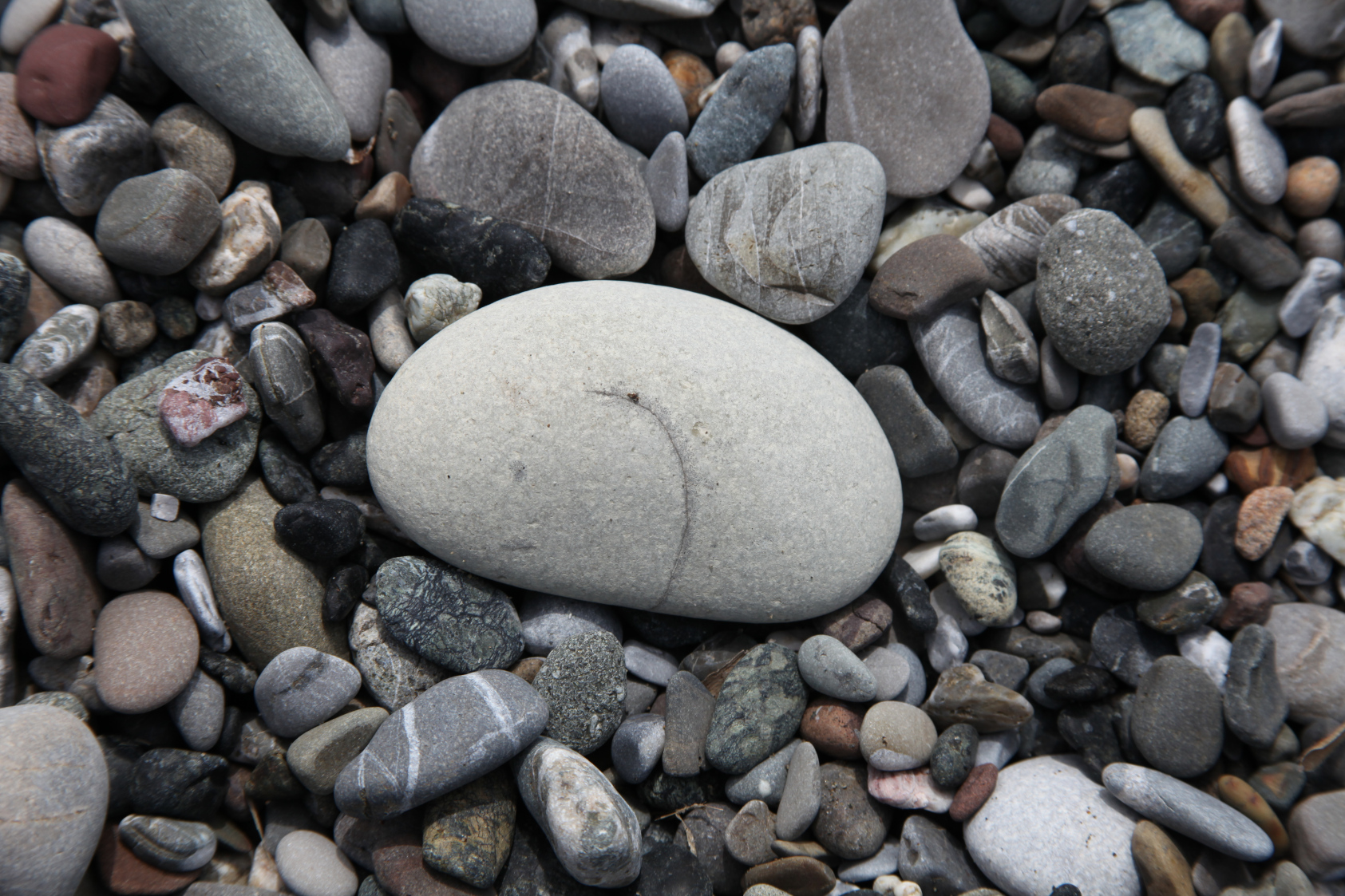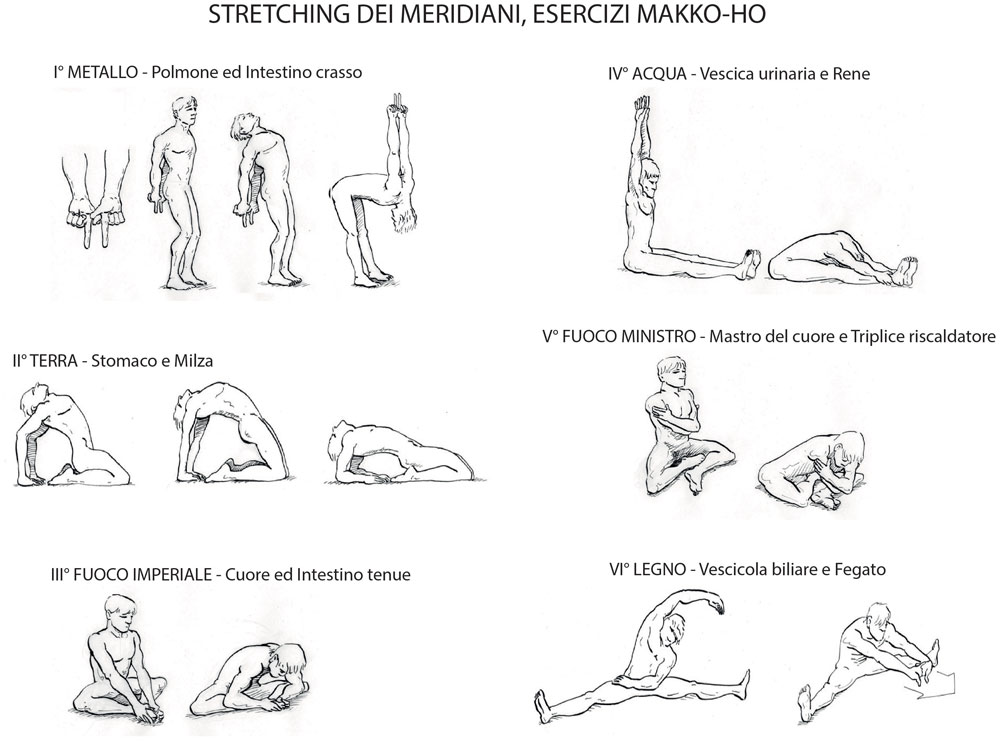The Constitution in Classical Chinese Medicine
and the 5 Emotions
It is more important to know which person has the disease
rather than which disease the person has
- Hippocrates
Constitution, character and personality are often considered synonymous but in reality they designate different things even if they all have to do with our way of thinking and feeling. Helping to clarify these concepts is certainly a big step in self-knowledge.
Constitution (or, according to some, "temperament") is what characterizes us from birth and is determined at a genetic level: our heredity. It is therefore the aspect of personality that manifests itself first, even in newborns. Since it is hereditary, it is difficult to manipulate or modify; however, we always have resources available to learn to manage its manifestations. Those who know the world of stones know that even minerals, considered the hardest and most immutable elements in the Universe, change and undergo transformations during their lives. In reality, everything changes and transforms: so why couldn't we do the same?
Unlike the constitution, character is the result of the environment and the experiences we have during life, and therefore also has a social basis. It is a less stable part of us than the constitution; it does not manifest itself completely in the initial stages of our development but reaches its maximum expression in the adolescence phase.
Character habits influence our biological predisposition by refining them, modulating them, varying them and thus giving life to our personality.
Personality is therefore the sum of constitution and character, and represents the distinctive trait of our individuality.

Constitution + Character = Personality
The Constitution and Emotions
In Classical Chinese Medicine, 5 main emotions are considered to belong to the constitution. Each emotion corresponds to a "constitutional type", which by definition responds instinctively with a predilection for one emotion over the others. Each emotion has an elective action on a particular organ, which will therefore be particularly sensitive depending on the constitutional type, according to this scheme (scroll horizontally the table if you can't see it all on the page):
| Emotion | Organ | Constitution | |
|---|---|---|---|
| 1 | Anger | Liver | Wood |
| 2 | Euphoria | Heart | Fire |
| 3 | Worry | Spleen/Pancreas | Earth |
| 4 | Sadness | Lungs | Metal |
| 5 | Fear | Kidneys | Water |
According to the Southern Chinese Taoist vision, when we are born, each of us chooses how and where to be born: we choose our parents, our intellect, our form, our psyche, etc., but above all we choose which organ to walk in the world with and which sense to perceive the world with, in the strict and broad sense. For example, someone who is constitutionally Wood will mainly base his existence on what he sees; someone who is Fire on what he touches; someone who is Earth on what he tastes, ingests; someone who is Metal on what he breathes; someone who is Water on what he feels (intended as hearing).
The Constitution: postural and tendon-muscular implications
Always according to Classical Chinese Medicine, the problems related to the constitution reside in the so-called wei qi energy, that is, the one that flows in the tendon-muscular Meridians. Each constitution corresponds to an emotion that by its very nature is instinctive, not rational, not mediated, therefore often unconscious: this is why postures and attitudes that we are not aware of often derive from it. An awareness in this sense is a first, important step to understand our body and from there our entire personality.
Keeping this in mind, we can draw some interesting conclusions:
- Anger acts on the Gall Bladder and Liver meridians resulting in hypertonia of the lateral muscles of the body, difficulty in rotational movements, intercostal pain, headaches, allergic disorders of an oculorhinitis nature.
This results in postural rigidity that can be the expression of a desire for control, and can be associated, according to Metamedicine, with a sense of threat.
A well-balanced Wood constitution has an erect but flexible and well-rooted posture. - Euphoric joy and over-excitement act on the tendon-muscular meridians of the Heart, Small Intestine, Minister of the Heart and Triple Warmer. There will therefore be tension in the shoulders, hypertonia of the extensor muscles of the upper limb, tachycardia, thoracic breathing, sweating especially in the armpits and palms of the hands, hypotension and sudden redness of the face.
In case of excessive sweating, Metamedicine emphasizes the possibility of feeling judged or having difficulty expressing one's emotions.
In case of hypotension, one may experience an unconscious sense of abandonment and discouragement. - Excessive worry or a tendency to ruminate act on the Stomach and Spleen meridians, which influence the masticatory muscles, and therefore have repercussions on the temporomandibular joint, on the anterior chain of the body, the difficulty in standing up straight, the tendency to introvert the shoulders. Nausea, vomiting, digestive difficulties and heartburn are frequent.
In the case of indigestion, nausea and vomiting, Metamedicine emphasizes the possibility that there is something that you cannot "digest", that you reject or particularly disgust you: before this discomfort occurred, were there perhaps words, behaviors of a loved one or situations that brought great displeasure? - Sadness acts on the tendon-muscular meridians of the Lung and Large Intestine, and will therefore be associated with tension in the muscle groups of the thorax, infrascapulars, shoulder elevators and sternocleidomastoid. It could thus give rise to breathing difficulties and colic attacks with frequent diarrhea.
In Metamedicine, breathing difficulties or colitis are both associated with the fear of other people's judgment and of not being able to be as "perfect" as we would like or others would like (generally a parent or a figure considered superior). - Fear acts on the Kidney and Bladder meridians and causes bladder tenesmus (sensation of pressure on the bladder as if one had to urinate), pollakiuria (frequent urge to urinate), strong tension in the lumbar region and in the posterior postural muscles, with stiffness of the spine.
In Metamedicine, it is interesting to note how bladder irritation problems are almost always linked to fear or stressful situations that one must face, such as the difficulty in enforcing one's limits, taking a stand or enforcing one's territory.
On the other hand, problems at the lumbar level, when not deriving from clearly identifiable physiological conditions (for example, falls or weight lifting) can lead to a sense of insecurity on a material level (loss of job, financial support, etc.).
Makko Ho: Meridian Stretching
It is possible to increase the flexibility of the body by working with specific exercises that stretch the postural districts in relation to the Meridians according to the sequence developed by the Japanese Shizuto Masunaga, founder of Zen Shiatsu. This technique is called "Makko Ho" ("practice that leads to truth"):

Image taken from the site https://www.shinseishiatsu.com/makko-ho-shitsuto-masunaga/
Bibliography:
- Il grande libro di aneliti, fragranze, profumi. La clinica degli oli essenziali secondo le modalità della Medicina Cinese, by Carlo di Stanislao, Francesco Deodato, Paolo Brici, Leonardo Paoluzzi
- Metamedicina 2.0 - Ogni Sintomo è un Messaggio. La guarigione a portata di mano, by Claudia Rainville
© Copyright Eloise Lonobile - Ogni riproduzione vietata
© Copyright Eloise Lonobile
Ogni riproduzione vietata
Qi, the Dance of the Universe The five constitutions in TCM
For appointments or personalized treatments: Write to me at +39 370 3484052 Send me a Whatsapp message
Thai Massage Swedish massage Emotional Californian Massage Thai Oil Massage Maori Wood Massage Energetic Meridian Massage Meditative Massage Cervical Treatment Decontracting Massage Deep Muscle Massage Ancient Roman Thermal Massage® Vodder Lymphatic Drainage Massage Drainage Massage Foot Massage Relaxing Facial Massage Hawaiian Lomi Lomi massage Dead Sea Salt Massage Shamanic Massage Cuppings / Moxibustion / Su jok / Auricolotherapy Thai Lanna Tok sen 4 Hands Massage See all
Give a massage
Professional activity regulated by Law 4/2013 - Legal notices - © Copyright Eloise Lonobile - Any kind of reproduction is forbidden

